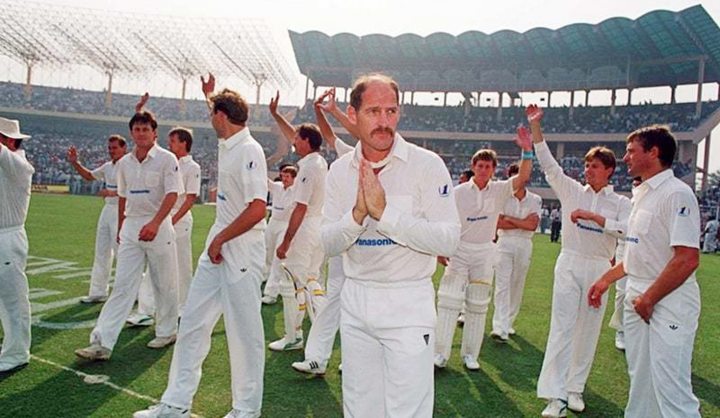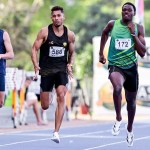Sport
Clive Rice: Cricket hero who didn’t step up over apartheid

Clive Rice, SA’s first one-day international captain in the post isolation era, passed away on Tuesday after a long battle with cancer. His on-field prowess cannot be doubted, but many will be left wondering why he never spoke out about the ills of apartheid, which denied him and countless others the chance at international sporting glory. By ANTOINETTE MULLER.
Clive Rice, SA’s first one-day international captain post isolation, passed away at the age of 66. Rice had been suffering from a brain tumour for quite some time. He had travelled to India to receive robotic radiation treatment earlier this year and, upon his return, he said that he was doing well. On Sunday night, he was admitted to hospital with severe stomach pain and he passed away on Tuesday.
Many regard Rice as one of the best all-rounders never to play Test cricket. His rise and career coincided with SA’s sporting isolation, but he served the domestic game for more than 480 first-class games and had notable seasons with the Transvaal side of the 1970s and 1980s. He was the driving force behind the “Mean Machine” as the team had become known, winning all of the major trophies available in the 1980s. He also had a successful stint with Nottinghamshire in England, leading the county to two championships. He accumulated 25,000 runs and 900 wickets in a career spanning over two decades.
His sporting prowess was never in doubt and we will never know just how great he could have been. It wasn’t until he was 42, an age way beyond retirement in modern cricket, that he had the opportunity to play international cricket. He captained SA in their first ever one-day international post isolation, and although he featured in just three matches at international level, he continued to play first-class cricket for a number of years following SA’s return to international sport.
When news of his death broke on Tuesday morning, cricketers and cricket boards rightly recalled his superb efforts on the field. He had a lasting influence on many of SA’s great players. His dislike of Transvaal’s rivals Western Province will also be fondly remembered. Before the day of Stepford media training for cricketers, Rice would antagonise the Western Cape team time and time again. His spirit was unrelenting and his love of the game evident.
But, like so many other sportsmen from that era, the question will also be asked whether Rice should have done more. Those who firmly believe that sport and politics absolutely should mix will wonder why Rice did not protest more and did not speak out more, especially considering his outspoken views on the quota system in post-apartheid SA.
In fact, when Hashim Amla was first selected to represent SA in 2004, his selection was thought of as a “transformation” decision. Rice referred to the quota policy as “apartheid in reverse”. He added that “white players are being driven out in droves” and that “there is no future for them here”.
Add to that the fact that Rice was one of the key men involved in convincing Kevin Pietersen to pack up in SA and qualify for England and those questions around the role players like Rice should have played only become more pertinent.
Many will view Rice as a victim of the oppressive regime that denied black and white players the opportunity to represent their country at international level. But to call him a victim would be to undermine the impact of an oppressive regime that denied many much more than a shot at sporting glory.
Unlucky due to the time of his birth? Sure, but also silent on the oppression and complicit in the so-called Rebel Tours which caused fierce controversy. Perhaps that is why he never complained about being born “too early”. It was only when his career had ended that he spoke about being the target of anti-apartheid demonstrations.
“At the time we (SA) were the skunks of the world. Clearly there was the odd occasion when there were anti-apartheid demonstrators around and sport was certainly a focus of their attention. There were a few incidents when people made a stand against me being on the field but you just had to put up with that and carry on playing the game. As a player there was nothing you could do, you were lumbered with SA’s ridiculous apartheid laws,” Rice said in an interview in 2010.
Rice will be fondly remembered for his cricketing prowess, but some will always wonder why he was not more outspoken about the regime that denied him and many others the chance to make it at international level. We can’t ask now, because he’s dead. But we can wonder. DM
Photo: Rice captained South Africa’s first One Day International against India at Eden Gardens, Calcutta. (10 November 1991)



















 Become an Insider
Become an Insider